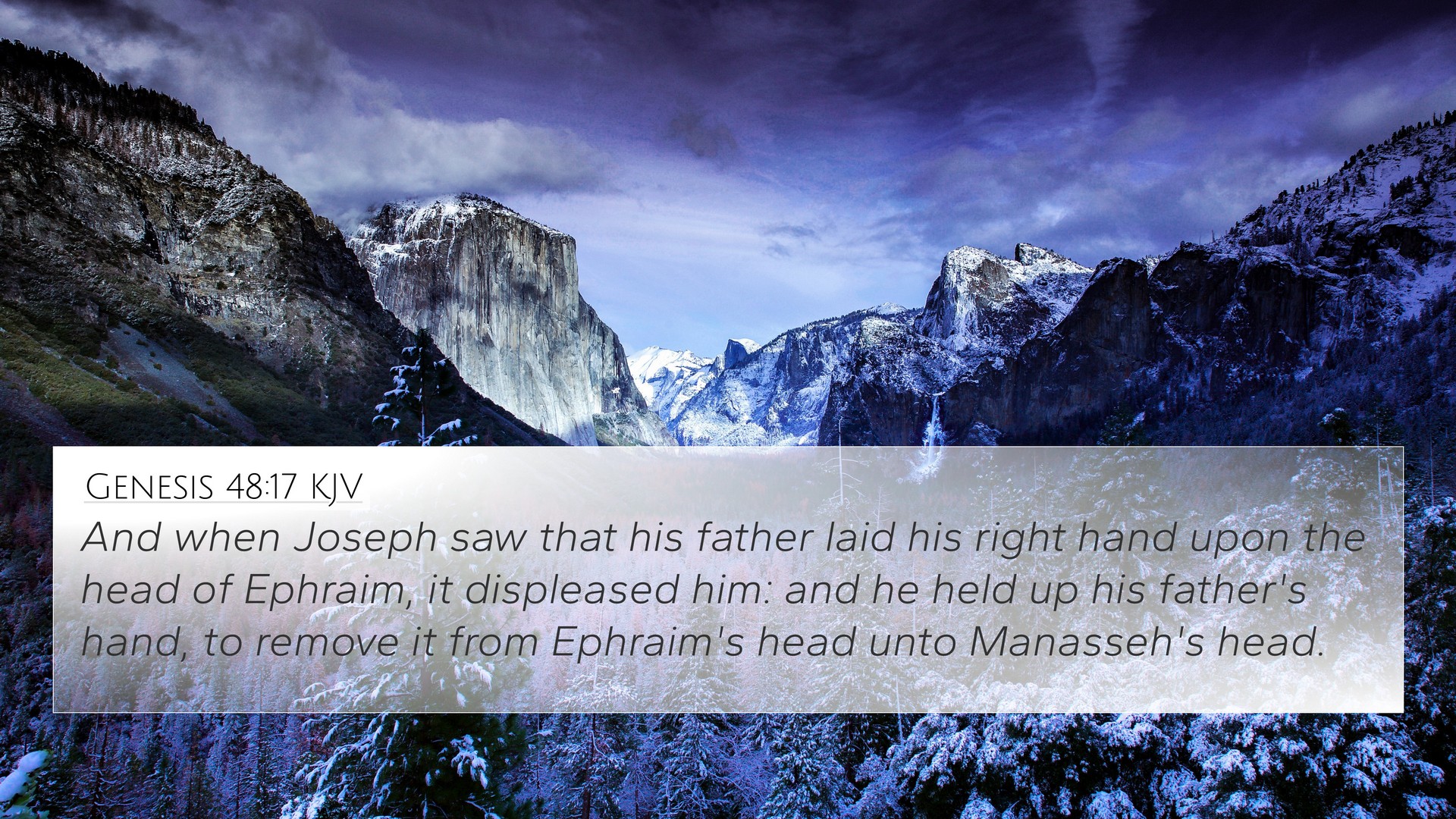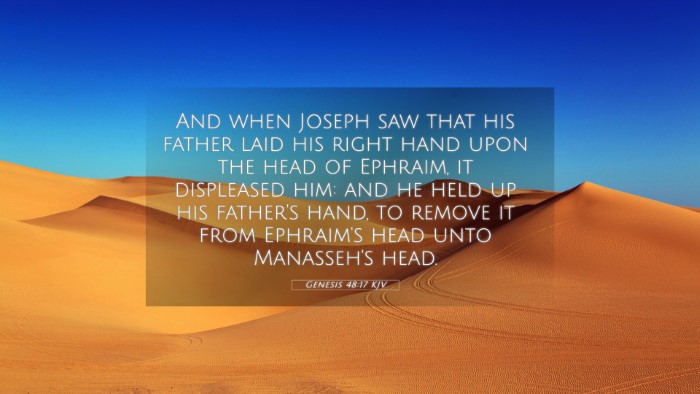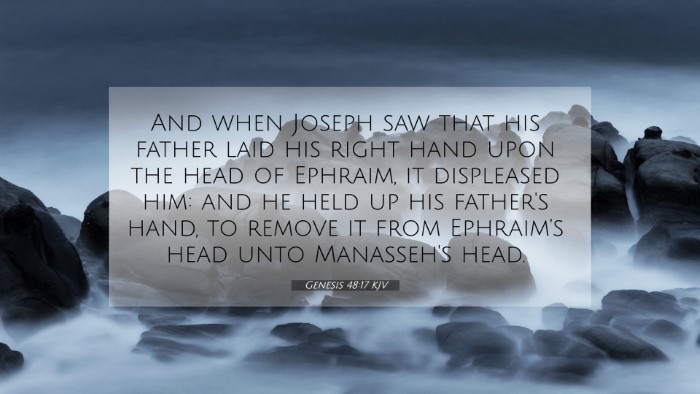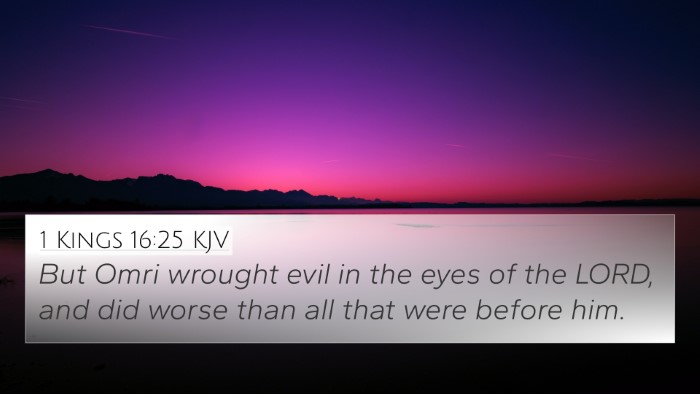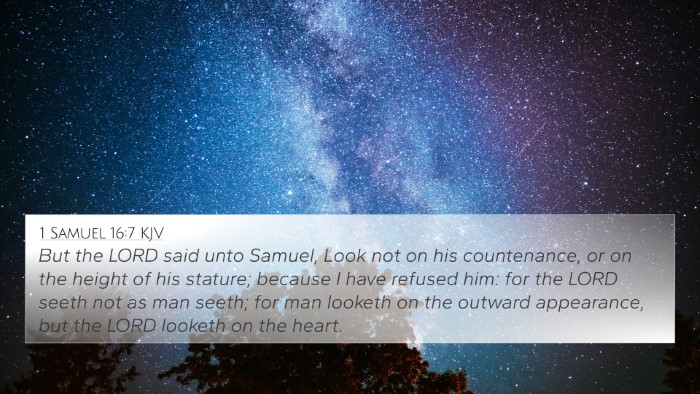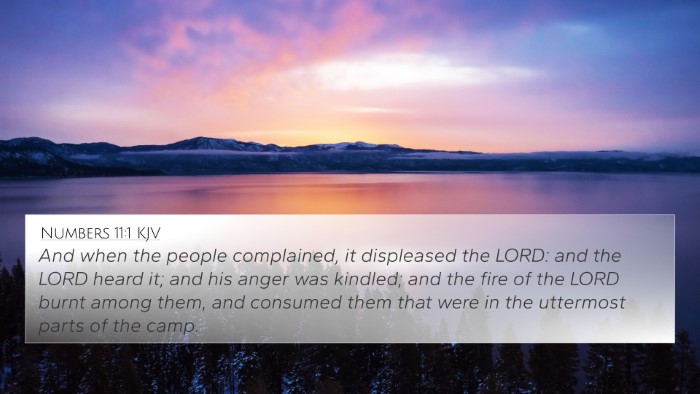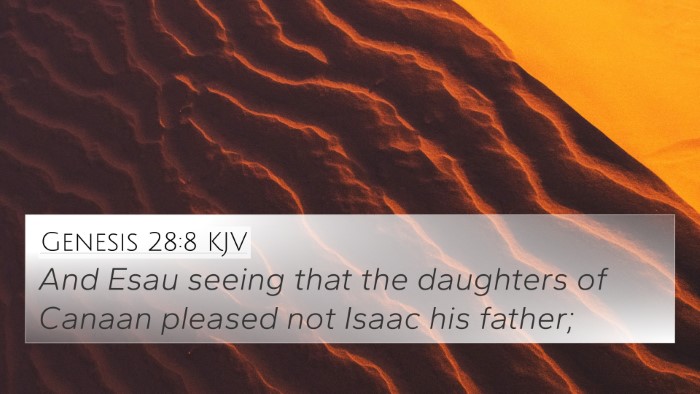Genesis 48:17 - Meaning and Interpretation
Verse Reference: Genesis 48:17
Text: "When Joseph saw that his father laid his right hand upon the head of Ephraim, it displeased him: and he held up his father's hand, to remove it from Ephraim's head unto Manasseh's head."
Contextual Overview
The context of Genesis 48 involves Jacob (Israel) blessing the sons of Joseph, Ephraim, and Manasseh. This blessing is significant as it represents the future leadership and inheritance roles within the tribes of Israel. Jacob's act of placing his right hand on Ephraim's head symbolizes a greater blessing than that given to Manasseh.
Interpretative Insights from Commentaries
-
Matthew Henry:
Henry explains that Joseph's displeasure arose from an understanding of the custom where the firstborn would receive the primary blessing. However, Jacob intentionally reverses the norm, signifying God's sovereignty over human traditions and expectations.
-
Albert Barnes:
Barnes highlights that the blessing given to Ephraim, the younger son, over Manasseh, underscores a biblical theme where God chooses the least favored to accomplish His purposes (e.g., David over his brothers). This act foreshadows the prominence of Ephraim’s tribe in the future.
-
Adam Clarke:
Clarke delves into the cultural implications of the blessing, noting that Joseph's attempt to correct Jacob reflects human reasoning clashing with divine intent. He emphasizes Jacob's prophetic insight that Ephraim would become greater and that this blessing reflects God's plan for Israel.
Key Themes and Theological Implications
This passage illuminates several important themes:
- Divine Sovereignty: God often chooses the unexpected, and this verse illustrates His freedom to determine the future of His people.
- Reversal of Expectations: The blessing of Ephraim serves as a reminder that God’s ways are different from human expectations, highlighting how earthly status does not dictate divine favor.
- Legacy and Inheritance: The transfer of blessing indicates the importance of spiritual heritage and its impact on future generations.
Biblical Cross-References
Genesis 48:17 can be cross-referenced with several other scriptures that relate to themes of blessing, inheritance, and divine selection. Here are key connections:
- Genesis 27:18-29: Jacob's blessing of Esau and Jacob, highlighting the theme of blessing the younger son.
- Genesis 49:22-26: Jacob’s final blessings which identify Ephraim as blessed within the tribes.
- 1 Chronicles 5:1-2: This passage reiterates that Ephraim, not Manasseh, received the birthright.
- Isaiah 11:13: Prophecies relating to the tribes of Ephraim and the future of God’s people from Ephraim's line.
- Romans 9:11-13: Paul discusses God's choice of Jacob over Esau as reflecting God's sovereign election.
- Matthew 20:16: "So the last will be first, and the first last," resonating with the reversal in blessing.
- Acts 7:14: Stephen speaks of Joseph’s family and blessings, connecting to their significance in Israel's history.
Understanding the Message of Genesis 48:17
The essence of Genesis 48:17 encourages believers to recognize the often-unpredictable ways in which God operates. It serves as a reminder of the need for humility in understanding divine plans—and the importance of grace over ancestry or social standing. The act of blessing Ephraim, despite Joseph's concerns, points to God's providential care over His people.
Application for Today
As readers and believers, we are called to embrace the dynamics of God's choice and to support those who may seem less likely to succeed in our eyes. Understanding that God values the heart and not human merit can transform our interactions and relationships within our communities.
Conclusion
Genesis 48:17 stands as a powerful passage that reflects profound spiritual truths about God’s character and His plans for humanity. Through careful cross-referencing and understanding of this verse, believers can glean lessons of divine favor, humility, and the unpredictable nature of God's blessings, emphasizing the underlying message of hope in God's overarching narrative.
